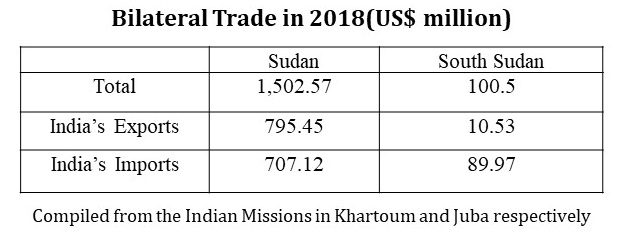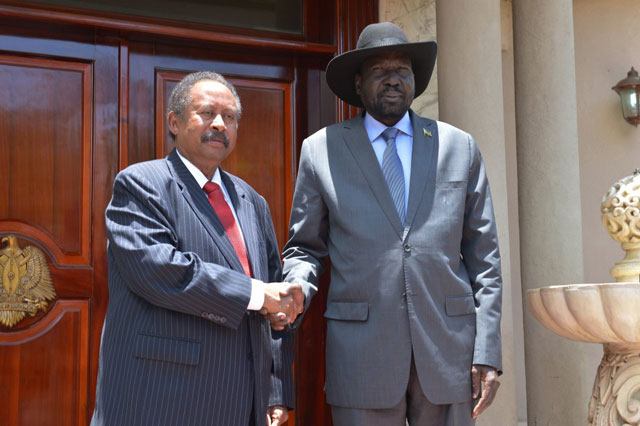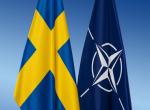After a decade-long impasse, the borders between Sudan and South Sudan reopened on 1st October, 2021. With this first step of rapprochement, two countries can now slowly advance towards stabilizing the ties between them. On 12th September Sudanese Prime Minister (PM) Abdallah Hamdok made a three-day visit to South Sudan where he met South Sudanese President Salva Kiir. During their meeting leaders from both the countries agreed to end their 11 years feud and reopen their respective country borders.
Where It All Started
The beginning of this feud dates back to 2012, just one year after South Sudan seceded from Sudan as independent country, when a violent war erupted between the two countries over the disputed oil-rich area in the border region of Panthou/Heglig and since, the cross-border movement between the two countries remained suspended [1]. Now, the reopening of the two countries’ border after a decade will not only restore the free movement of people and goods, but will also pave the way for revitalisation and implementation of the “four freedom protocol”. The aforementioned protocol was part of the 2012 cooperation agreement, signed between the two neighbouring countries. As per the agreement, citizens of both the countries are granted to exercise four types of freedoms, namely: freedom of residence, freedom of movement, freedom to undertake economic activity and freedom to acquire and dispose property [2].
Plan for Rapprochement
On a more concrete level, two countries have identified four borders to be opened in the first phase, namely: Jebeleen-Renk, El Meiram-Aweil, Buram-Timsah, and Khurasana-Bankwig. Among them, Jebelein-Renk border crossing will be functional from 1st October itself and the remaining three will also be functional shortly [3].
Recognising the importance of connectivity, South Sudan’s Vice President Taban Deng Gai, in a separate meeting with Sudanese PM, agreed to construct roads and railways that can link the two countries. Four important roads of South Sudan that connects it with Sudan, Juba- Bor- Ayod -Renk road, Bentiu -Hegleg road and Abyei-Muglad as well as Aweil- Meram route, have been identified for priority infrastructure development programme [4]. In addition, discussions took place to develop the railway line between Babanusa and Wau for improved trade and travel [5]. Finally, the Sudanese River Navigation Authority at the Ministry of Transport expressed their plans to resume the river cruises and transport with South Sudan [6]. Surprisingly, despite these measures to improve land and waterways, both leaders remained conspicuously silent concerning the enhancement of air connectivity. Currently, only Badr Airlines and Tarco Air, both Sudanese airlines, are flying between the countries and a lot more needs to be done to improve the inter air connectivity.
Implications of Rapprochement
Nonetheless, it is a major milestone toward reconciliation between the two rival countries after nearly a decade of mutual distrust and frequent outright hostility. While the major benefits from this rapprochement will be countless, the most prominent are commercial and national security issues. The opening of the border will allow South Sudan, a landlocked country, to export its crude oil through Sudan. The move will also benefit Sudan by improving their revenue by taxing transported oil from South Sudan. Although South Sudan possesses enormous amount of proven oil reserves, it is yet to develop domestic refining capacity and still imports petroleum products to fulfil their local demand. Due to lack of finance, the development of five planned refineries is stalled and only Bentiu refinery has started producing 3000 barrels of refined oil a day [7], which is largely insufficient for the country. In the meantime, Sudan has two active oil refineries and three topping plants and using them can benefit both the countries [8].
If carried out successfully, the current rapprochement, will also have a major impact on North-West African geopolitics which includes four countries of Horn of Africa, Egypt and two Sudans [9]. Clashes along the borders have made thousands of refugees crossing international borders in a desperate bid to reach safety. The refugee crisis in the border regions of these two countries is placing enormous strain on neighbouring countries’ existing resourcesaggravating their existing challenges. According to UN Refugee Agency, since civil war broke out in South Sudan in 2013, more than two million South Sudanese have fled to neighbouring countries, including Ethiopia, Kenya, Sudan and Uganda [10]. Peace between these two nations could be a welcome positive development leading to prosperity, stability and peace for the countries of the region and beyond.
Furthermore, peace between the two nations will also help Sudan to gain access to a new market for its products and businesses. Additionally, this would allow Sudan to diversify its economy and lessen its dependence on Chinain the longer term. Currently Sudan, the third-largest country in Africa, owes approximately 20 billion dollars to China. It has already started perceiving the excruciating burden of Chinese debt-trap and looking for an alternative before it’s too late [11].
Where Does India Stand
Quite understandably, the rapprochement and subsequent dilution of Chinese influence in the region could benefit India immensely. India has a long-standing relation with Sudan and has been actively engaged with South Sudan since its independence. As a matter of fact, it was Election Commission of India, under Sukumar Sen, that helped Sudan to conduct their first parliamentary election in 1953 [12]. During 1993 and 1994, India supported Sudan against United Nations resolution number 48/147 on human rights situation [13]. Similarly in 1994, when IMF tried to expel Sudan from the group, India lent its support for Sudan in an unequivocal manner [14]. Since 2003, the bilateral relationship with India touched new high when India’s national oil company Oil and Natural Gas Company ONGC (V) invested heavily in undivided Sudan, over 2.3 billion [15]. In 2015, when the ousted President Bashir visited India for 3rd India Africa Summit (IAFS), India was called by the International Criminal Court and human rights groups Amnesty international and Human Rights Watch to arrest him [16]. However, despite rising criticism India categorically denied to take action against him.
The neighbouring Republic of South Sudan, through a peaceful referendum gained independence from Sudan in 2011. However, the journey to independence of Africa’s newest country and 193rd member of the United Nations is laden with two bloody civil wars (1962-72 and 1983-2005), followed by a Comprehensive Peace Agreement (CPA) between the Government of Sudan and Sudan People's Liberation Movement (SPLM) in 2005. Although India never took side during the civil wars, it was one of the first countries to recognize independent South Sudan. The first Independence Day celebrations on 9th July 2011 was attended by a high-level delegation led by the then Vice President of India Hamid Ansari, in Juba[17]. In October 2015, President Salva Kiir attended the 3rd IAFS in New Delhi [18]. South Sudan is also part of Indian Solar Alliance (ISA). Besides, India has been constantly providing its defence personnel for the peacekeeping operations in both Sudan and South Sudan.

Scholarships
ITEC and ICCR are 2 most important tools for India to support African students in their capacity building. India launched Indian Technical and Economic Cooperation Programme (ITEC), a bilateral assistance programme in 1964 to support developing countries in building their capacities. India has reserved about 50% of these ITEC scholarships, about 4300, for African nations. Another 900 important scholarship is reserved for African countries through Indian Council for Cultural Relations is to pursue undergraduate, postgraduate and higher courses programme at Institutions/Universities in India.

Challenges and Way Ahead
The ongoing rapprochement is indeed a marvellous news not only for the two countries, but also for the region as friendly relations between the two countries will lead towards peace, progress and stability in the region. It is palpable that this positive development between the two countries is generating lots of political exhilaration among the leaders of both the countries. This was evident when the images of both South Sudan's President Salva Kiir and Sudan's Prime Minister Abdalla Hamdok looking jubilante merged in the newspapers [19]. However, the process is nevertheless full of uncertainties given the turbulent relationship that these two countries have had in the recent past and it is probably little too early to celebrate.
To recall, the relation between the two countries remained sour since 2011, when South Sudan seceded from Sudan followed by a violent civil war. In the process, South Sudan acquired the right of three quarters oil reserves of undivided Sudan, estimated at proven 5 billion barrels, as per the United States Energy Information Administration [20]. In 2016, Sudan’s then President Omar Hassan al-Bashir, tried to open the borders with South Sudan. But due to several reasons including lack of strong political will, they were soon closed again. There are about 2000 borders between the two countries, most of which remained closed throughout Omar Bashir’s rule [21].
As a matter of fact, since 2011 mutual distrust has never ceased to exist between the countries. The unresolved issues of dispute are varied such as security, citizenship, finances, economic and natural resources, international treaties and other legal issues [22]. For long, Sudan has been accusing its neighbouring country of backing the rebels of Darfur region as well as in the Blue Nile and South Kordofan [23]. South Sudan, in turn, accuses Sudan of backing rebels in their territories.
Since the ouster of Bashir in 2019, and particularly under the guidance of Sudan’s current Prime Minister and a seasoned economist, Abdalla Hamdok several instances of positive development started to emerge. At this moment, Hamdok is also serving as Chairman for Intergovernmental Authority on Development (IGAD). He understands the economic value of opening the border and committed towards rescuing the moribund Sudanese economy. The role of his counterpart, South Sudanese President Kiir, has also been appreciated for actively initiating the peace process between the two countries [24]. However, clichés and preconceived notions against each other prevail and going forward, both countries could utilise media in order to overcome it.
Presenting only the mistrust between the two countries will be a misrepresentation of the ground realities as both the countries are also combatting internal conflicts, ingrained since the colonial days. Given the deep ethnic divide in their respective societies, the success of the rapprochement will probably depend as much on internal factors, as on external factors. In South Sudan, ethnic tensions between more than 60 different ethnic groups, particularly the two largest ethnic groups the Dinka and the Nuer have never been resolved and even a few years ago, United Nations Mission in South Sudan (UNMISS) reported the possibility of a Rwanda like genocide [25].
In Sudan, even two years after the ouster of Omar al-Bashir, the process of political transition is far from being over and hardly peaceful. The country has been continuously reeling under severe unrest, particularly in the east, with continuous attempts by the Beja tribes to shut down ports, block the national roads and halt the oil production [26]. Despite the hard work of transitional government led by Hamdok in undergoing several reform programmes, the country is still struggling with high inflation and unavailability of consumer goods.
While the country’s leaders are already overwhelmed by the unrest, caused principally by deep economic crisis, as per the Sudanese Authorities, there was an attempt of coup by Bashir loyalists on as recent as 21st September [27]. Even though the coup has been successfully thwarted this time, US government while condemning the coup has also uttered a veiled threat of reimposing sanctions in case of a military takeover [28]. As the much-awaited election in Sudan is scheduled in 2024, the recurrence of such events can seriously hamper the process of civilian democratic transition and might draw the country towards a spell of utter chaos.
The deterioration of the security situation between the two countries or in either of the country can lead to a chaotic situation for the region. Both sides know their enhanced relationship will auger well for the region and help to counter several internal and external challenges. The enhanced cooperation also represents an opportunity to leave behind the decade-old legacy of violence. As classical liberalism drives their policy of rapprochement, both Sudan and South Sudan will need to walk a tightrope as a possible offshoot of domestic politics can derail the whole process.
References
[1] The Conversation, September 22, 2021.What Sudan and South Sudan stand to gain by reopening their border. https://theconversation.Icom/what-sudan-and-south-sudan-stand-to-gain-by-reopening-their-border-167546
[2]Reliefweb, September 10, 2012. Sudan and South Sudan ends talks over four freedoms. https://reliefweb.int/report/south-sudan-republic/sudan-and-south-sudan-ends-talks-over-four-freedoms
[3]Dabanga, August 21, 2021. First Sudan-South Sudan border crossing to re-open in October. https://www.dabangasudan.org/en/all-news/article/first-sudan-south-sudan-border-crossing-to-re-open-in-october
[4]Sunday Tribune, August 21, 2021, Sudan, South Sudan to open border next October: minister. https://www.sudantribune.com/spip.php?article69971
[5]Sudan Commerce News, August 22, 2021. Sudan, South Sudan to open border next October: minister. http://sdeconews.com/story-z24448611
[6]Dabanga, August 20, 2021. River transport between Sudan and South Sudan to resume as bilateral relations strengthened. https://www.dabangasudan.org/en/all-news/article/river-transport-between-sudan-and-south-sudan-to-resume-as-bilateral-relations-are-strenghtened
[7]Oil Review Africa, March 22, 2021. South Sudan’s Bentiu oil refinery starts producing refined oil products. https://www.oilreviewafrica.com/downstream/downstream/south-sudan-s-bentiu-oil-refinery-starts-producing-refined-oil-products
[8]EIA, Background Note on Sudan and South Sudan. November 7, 2019. https://www.eia.gov/international/content/analysis/countries_long/Sudan_and_South_Sudan/background.htm
[9]Daniel Kendie, Northeast Africa and the world economic order, Northeast African Studies Vol. 10, No. 1 (1988), pp. 69-82 (14 pages)
[10]UNHCR. South Sudan Emergency.https://www.unhcr.org/south-sudan-emergency.html
[11]ANI August 10, 2021. Oil-rich Sudan begins to sense exploitation meted out to them by Chinese. https://www.aninews.in/news/world/others/oil-rich-sudan-begins-to-sense-exploitation-meted-out-to-them-by-chinese20210810040556/
[12]Ministry of External Affairs, India-Sudan Bilateral Relations, 2019. http://www.mea.gov.in/Portal/ForeignRelation/India_Sudan__2019.pdf
[13]idem
[14]idem
[15]idem
[16]The Hindu, October 2015. Modi calls India, Africa ‘two bright spots’. https://www.thehindu.com/news/national/prime-minister-narendra-modi-calls-india-africa-two-bright-spots-in-global-economy/article7818040.ece
[17]Ministry of External Affairs, India-South Sudan Bilateral Relations, September 2019. https://mea.gov.in/Portal/ForeignRelation/Brief_on_India_South_Sudan_2019.pdf
[18]Sudan Tribune, October 29, 2015. S. Sudanese president in Delhi to attend India-Africa summit. https://sudantribune.com/spip.php?article56883
[19]The East African, August 23, 2021. Sudan, South Sudan to reopen borders after 11 years. https://www.theeastafrican.co.ke/tea/news/east-africa/sudan-south-sudan-to-reopen-borders-3521412
[20]Reuters, January 28, 2016. Sudan opens border with South Sudan for first time since 2011 secession. https://www.reuters.com/article/us-sudan-southsudan-idUSKCN0V52TW
[21]Daily Monitor, August 23, 2021. Sudan, South Sudan to reopen borders after 11 years. https://www.monitor.co.ug/uganda/news/sudan-south-sudan-to-reopen-borders-after-11-years-3521536
[22]Sudan Tribune, December 13, 2010.Post-referendum negotiations continue in Juba on Monday.https://sudantribune.com/Post-referendum-negotiations,37247
[23]Reuters, November 13, 2011.Sudan rebels in Darfur, border states sign alliance reuters.com/article/ozatp-sudan-rebels-20111113-idAFJOE7AC01320111113
[24]Reliefweb, September 2, 2020.The Chairperson of the AU Commission Commends the Sudanese Parties for Initialing the Juba Peace Agreementhttps://reliefweb.int/report/sudan/chairperson-au-commission-commends-sudanese-parties-initialing-juba-peace-agreement
[25]UNMISS, November 30, 2016.UN human rights experts says international community has an obligation to prevent ethnic cleansing in South Sudan. https://unmiss.unmissions.org/un-human-rights-experts-says-international-community-has-obligation-prevent-ethnic-cleansing-south
[26]Reuters, September 25, 2021. Protesters in eastern Sudan shut oil import pipeline – ministry. https://www.reuters.com/article/uk-sudan-politics-east/protesters-in-eastern-sudan-shut-oil-import-pipeline-ministry-idUKKBN2GL0A9
[27]The Indian Express, September 22, 2021. Sudan says coup thwarted, accuses Omar al-Bashir loyalists. https://indianexpress.com/article/world/sudan-says-coup-thwarted-accuses-omar-al-bashir-loyalists-7526354/
[28]Reuters, September25, 2021, U.S. envoy to travel to Sudan next week after attempted coup. https://www.reuters.com/world/africa/us-envoy-visit-sudan-next-week-white-house-says-2021-09-24/
(The paper is the author’s individual scholastic articulation. The author certifies that the article/paper is original in content, unpublished and it has not been submitted for publication/web upload elsewhere, and that the facts and figures quoted are duly referenced, as needed, and are believed to be correct). (The paper does not necessarily represent the organisational stance... More >>
Image Source: https://www.ntv.co.ug/ug/news/international/south-sudan-sudan-to-reopen-four-border-crossing-points-3523236











Post new comment